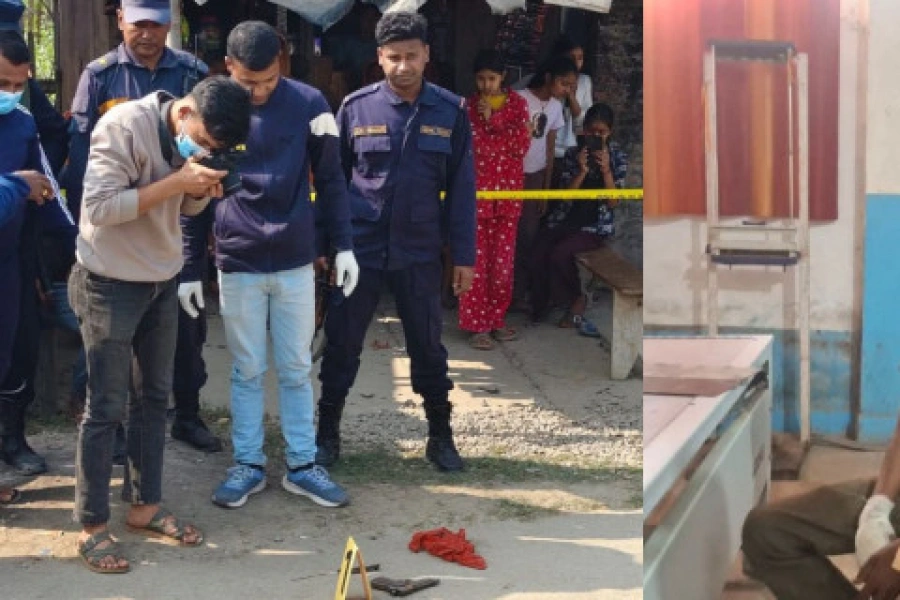RUKUM, July 17: In the last one year, 117 women and 37 men filed cases for divorce at the district court in Rukum (west). According to Judge Atmadev Joshi, the number is alarming. When couples are married at a young age, they are least likely to handle the married life smoothly, he said.
Speaking at a press meet organized to give a picture of the court’s performance and achievements on Tuesday, Judge Joshi stated that though child marriage is ending up in divorce, the society does not seem to have learned lessons from it.
“Child marriage continues to take place though such marriages are generally ending up in divorces,” he said.
Child marriage used to be a traditional practice in different parts of the country including Rukum in the past. People aged over 70 or 80 have interesting anecdotes to share about ‘marriages of our time’. The belief that sending off daughters to the grooms’ house before they menstruate would earn the parents a place in heaven was the reason behind such practice.
Child marriages ending up in divorces in Rukum

With time, the marriageable age extended though some rural areas could not follow the footsteps. There are several remote areas in the country including the outskirts of Lalitpur district where child marriage still exists. Even today, a huge number of people, basically of the Tamang community marry before 16 in Lalitpur district. Change has been slower in Rukum villages. According to Judge Joshi, who earlier served at several other courts before being posted here, the situation in Rukum is worrisome.
“Regarding child marriage, I found it very troublesome situation here. It has greatly impacted the health of women and children,” he said. “This situation needs to be seriously tackled.”
Deepa Ghartimagar, 23, of Putha Uttarganga Rural Municipality regrets marrying at an early age. She was just 15 when she got married. The next year, she gave birth to a baby. “Then my bad days started. I have suffered a lot,” she said.
Ghartimagar developed some health complications after giving birth to her first child. She conceived soon again. That added to her health problems. “There was no rest, no nutritious meals. Even my children suffered,” she laments. When they get married at school-going age, education of girls often come to an abrupt end. Only a few families love sending their daughters-in-law to school. Ghartimagar was not so lucky. “I had to quit studies,” said Ghartimager, who got married before completing her lower secondary level.
Hers was a love marriage. According to Judge Joshi, the traditional kind of child marriage is not that common in Rukum these days, but children jump into marriages themselves. Ghartimagar agrees. Many girls of her age opted for love marriage. “And they are all regretting now,” she reported.
The lives of children get ruined after marriage as they cannot take the responsibilities. Ghartimagar’s husband used to show much care to her before marriage. He remained excited about the new life for a few months. “After that, I saw his true color. He would not care about me or children,” Ghartimagar said. “He started beating me, torturing me.”
Last year, she reached the court for divorce. She had come to a conclusion that life with her husband was not possible anymore.
Ghartimagar’s life is a representative story of many young girls. In lack of support and motivation, they cannot open the doors of opportunity for themselves and succumb to the dark world. “We feel very poor and helpless. With children in our laps, we cannot be free to pursue our dreams,” said Ghartimagar.
Foreign employment is also a major factor for divorce, according to Judge Joshi. People find it very hard to handle long-distance relationship. “We have found that foreign employment, poverty, high ambitions etc are also triggering divorces,” he said. He informed that people aged between 19 to 65 years of age have filed cases for divorce. Earlier, elderly people would hardly come for divorce.
“Very young people to old ones are seeking divorce. This shows the changing face of the society. People’s mindset and priorities have changed, too,” Joshi said.




































